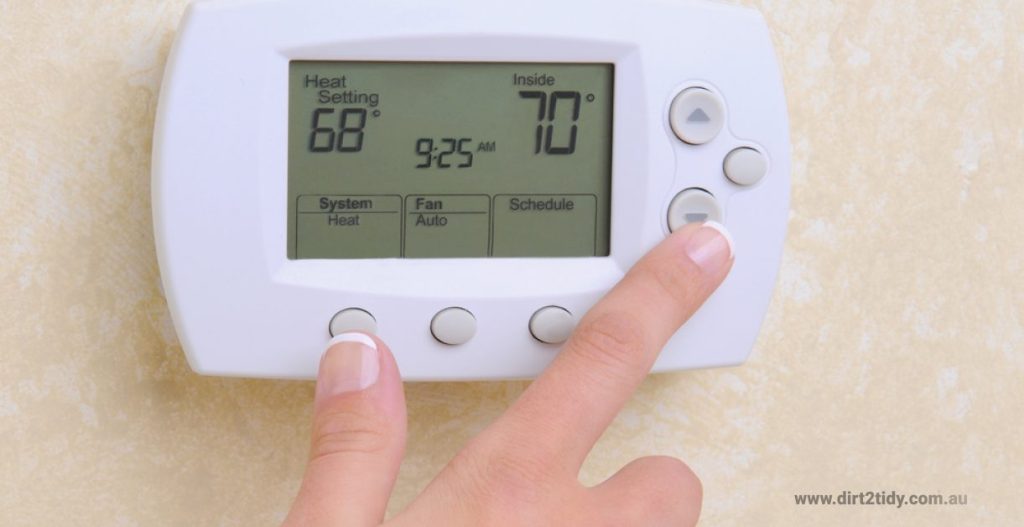Table of Contents
We rely on air conditioning more than any other time of year during the warmest months of the year. During those strong heatwaves, we even leave the air conditioning on all the time in summer months.
Although it gives comfort, one issue lingers: should you use your air conditioner continually in the hot summer? True, it keeps you cold, but is the unit more efficient, and is it meant to run continuously in intense heat? A multitude of things influence the answer here.
Can the Air Conditioner Keep Running?
How Does an Air Conditioner Work?
Let’s peel back the cover (figuratively!) and look at what happens behind the scenes when you flip on your air conditioner. Essentially, an air conditioner has an outdoor part (with the compressor and condenser) and an indoor part (housing the evaporator and blower). When you set your thermostat to that blissfully chilly temperature, the compressor springs into action. It circulates refrigerant—a specialized cooling fluid—through a closed loop between these two units.
Inside, the evaporator gets to work by absorbing the heat and moisture from your home’s air. The cooled air is then pushed through your ducts and out of the vents, giving you that refreshingly crisp indoor climate we all crave in the summer. Meanwhile, the heat collected from your air is released outside via the condenser. This ongoing cycle is what enables your system to keep the indoors comfy—whether you’re lounging with a fan or hosting a neighborhood barbecue.
On a hot day, an average air conditioner should operate for 15 to 30 minutes. After 30 minutes, the inside temperature should have reached the desired level, and the unit should switch itself off; at least, if you have an inverter air conditioner or auto cooling turned on for energy consumption.
As a result, if left running, the AC will switch off until the temperature climbs above your preset, at which point it will turn back on, repeating the cycle. Older devices due to wear and tear may not have this capability, so they will continue to operate at full power. This results in a frigid house rather than a nicely chilled room with high energy bill.
When the temperature reaches 30 degrees Celsius or above, your air conditioner may rarely, if ever, switch off. The good news is that this is normal and will not affect your system. They are built to last during those scorching heat times.
The problem is frequently with the overall power supply. Thousands, if not hundreds of thousands, of homes are all doing the same thing. Summertime rolling blackouts and power outages are typical owing to increasing electricity demand with AC running all day. During these times, some Australian households might consider portable air conditioning solutions to stay comfortable without overloading their primary systems.
Even so, a well-maintained air conditioner may provide 24 hour cooling. However, operating your unit all day will cost you more money. This is simply due to the fact that the outside heat saps the cold from within the residence. These are necessary expenses and the price of convenience.
Tips for Energy Efficiency and Affordability
Some energy-efficient technologies are intended to run continuously throughout the day and night. Some say that it is the most efficient way to run an air conditioner. It is safe to do so, but frequent maintenance is even more vital because the system is subjected to more wear and strain.
Many individuals feel that running your air conditioner all day is more efficient. This is because the unit will never have to work too hard to cool the house at any particular time. The inside temperature is continually hanging around the temperature set by your thermostat.

Benefits of Using Programmable Thermostats
Programmable thermostats are a handy tool if you’re looking to save both energy and money. By letting you automatically schedule temperature changes throughout the day, these thermostats make it easy to keep your home cooler only when you need it—like in the evenings when everyone’s home—and bump up the temperature while the house is empty.
Not only does this reduce unnecessary strain on your air conditioner, but it also helps lower your overall utility bills. With brands like Ecobee and Honeywell offering user-friendly options, setting up a comfortable cooling schedule has never been easier. Plus, you’ll enjoy walking into a perfectly cool home on those hot summer days, all while being kind to your wallet and the environment.
However, if you’re concerned about the possible expense of operating your air conditioning equipment around the clock, you need to think about several additional aspects.
How Ceiling Fans and Closed Doors Boost A/C Efficiency
Strategic use of ceiling fans and closed doors can do wonders for your air conditioner’s efficiency. Ceiling fans help by distributing cool air more evenly throughout the room, which means your A/C won’t have to work overtime to keep hot spots at bay.
Meanwhile, keeping doors closed helps trap that cool air right where you want it—inside the room you’re cooling. This prevents chilled air from escaping into unused spaces, so your air conditioner doesn’t waste energy trying to cool the entire house.
Simple steps like these not only make your home more comfortable, but they also trim down unnecessary energy use, saving you money in the long run.
A Quick Checklist of Factors Influencing the Life of Your Air Conditioner
The outdoor temperature is
The hotter it is, the longer it will take your air conditioner to reach your target temperature.
Your thermostat setting
In the summer, the lower you set your thermostat, the longer your air conditioner will have to work to reach it.
The size of your air conditioner
The condition of your air conditioner and air filters, When you take care of your air conditioner, it will run more effectively and last longer. An unmaintained air conditioner has the opposite effect. It will not chill your home and will have to run longer to attain the required temperature.
That’s why scheduling periodic maintenance checks is so important. Catching minor issues early on prevents them from snowballing into bigger, wallet-draining problems down the road. Regular maintenance keeps your unit humming along at maximum efficiency, which means lower energy bills and a longer lifespan for your A/C. In short, a little attention now saves a lot of frustration (and money) later.

Your house’s size
A larger house will take longer to cool, especially if the air conditioner unit is modest or it is a windows air conditioner.
Insulation in your house
Because of a lack of sufficient insulation, most of your cool air is escaping outdoors. As a result, cooling your home will take significantly longer, and your air conditioner will have to operate longer to compensate for the loss.






